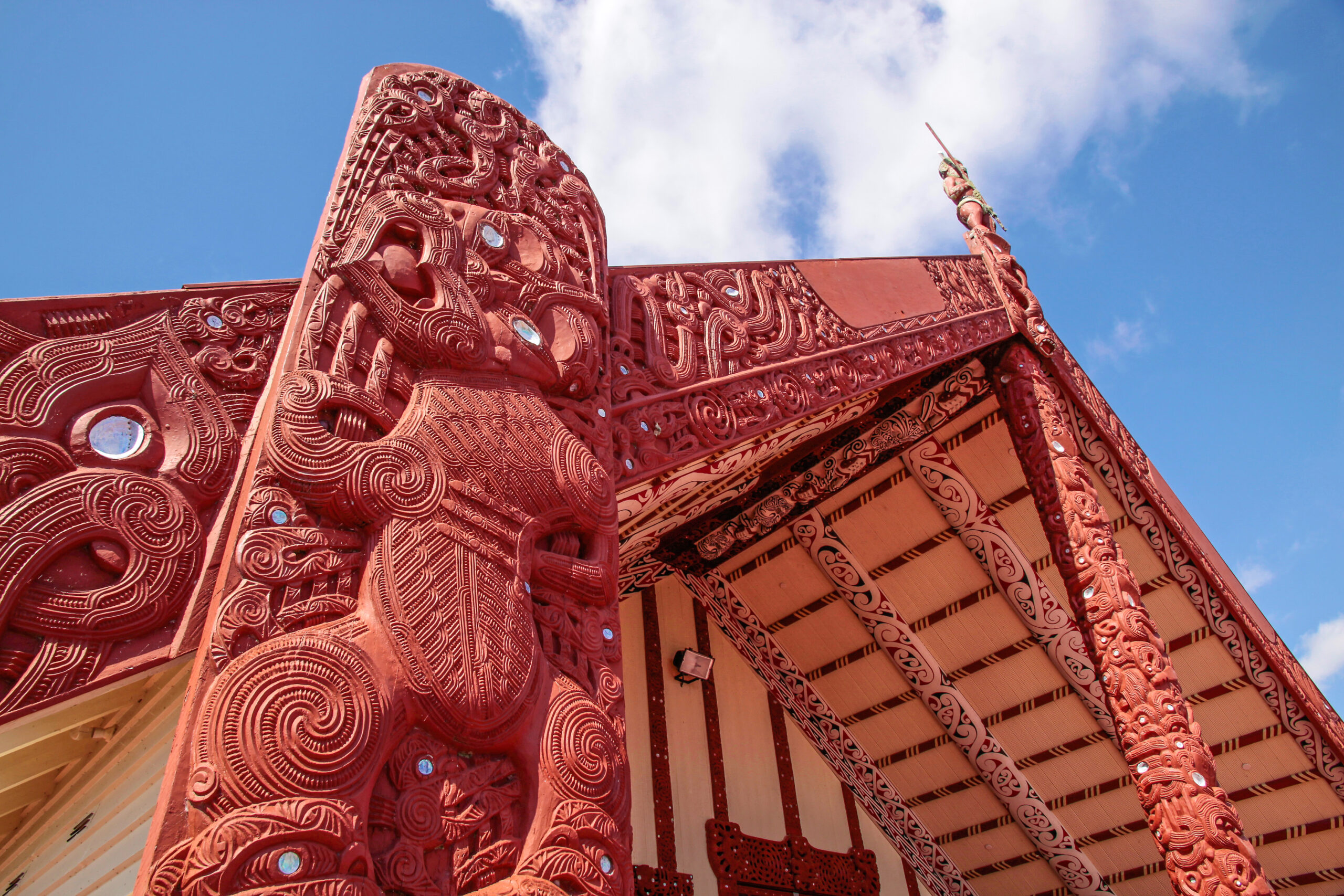
Trying to be bicultural is a strength of our education system. © Adobe Stock, cmfotoworks
<h2><span data-contrast="auto">Recently announced cuts Te Ahu o te reo Māori, a programme which develops teacher competency in te reo Māori, have faced backlash from the student and education community. </span><span data-ccp-props="{}"> </span></h2>
<p><span data-contrast="auto">The $30 million slashed from funding for Te Ahu o te reo Māori will be used to fund the government’s new maths programme, a move which union NZEI Te Riu Roa describes as “a mistake”. </span><span data-ccp-props="{}"> </span></p>
<p><span data-contrast="auto">Students seem to agree, with a group from Wellington East Girls’ College writing an open letter to Education Minister Erica Stanford. </span><span data-ccp-props="{}"> </span></p>
<p><strong><a href="https://www.schoolnews.co.nz/latest-print-issue/" target="_blank" rel="noopener">Read the latest print edition of <em>School News</em> HERE</a></strong></p>
<p><span data-contrast="auto">“Having strong te reo Māori kaiako (teachers) in our school is important to our learning in all subjects, because our te reo Māori-speaking teachers connect with us in a different way.” </span><span data-ccp-props="{}"> </span></p>
<p><span data-contrast="auto">The students also refuted Stanford’s claim that the programme had no direct impact on student achievement. </span><span data-ccp-props="{}"> </span></p>
<p><span data-contrast="auto">“This decision makes us feel like you don’t really care about Māori people. It’s saying that your culture (and also maths) is more important than our culture.</span><span data-ccp-props="{}"> </span></p>
<p><span data-contrast="auto">“We’ve lost the language due to colonisation&#8230; if we don’t have teachers speak te reo Māori, then we won’t learn te reo Māori, because our parents didn&#8217;t get a chance to learn.”</span><span data-ccp-props="{}"> </span></p>
<p><span data-contrast="auto">Yasmeen Parbhu (Ngāti Porou, Ngāti Whātua, Ngāti Ata, Ngāi Tahu) and Rosie Dunn (Te Rarawa, Te Aupōuri, Ngā Puhi), two year 10 students who helped to write the letter, told RNZ that Te Ahu o te Reo made a world of difference to their education. </span><span data-ccp-props="{}"> </span></p>
<p><span data-contrast="auto">They said they noticed teachers who took the course better understood tikanga Māori and were more inclusive. </span><span data-ccp-props="{}"> </span></p>
<p><span data-contrast="auto">“Te reo Māori is our identity&#8230; even if you’re not Māori, you’re still in New Zealand and it’s our langauge. </span><span data-ccp-props="{}"> </span></p>
<p><span data-contrast="auto">“[Te reo Māori] is something we all need to learn,” said Yasmeen. </span><span data-ccp-props="{}"> </span></p>
<p><span data-contrast="auto">“Maths is important but it shouldn’t have to be at the expense of te reo.”</span><span data-ccp-props="{}"> </span></p>
<p><span data-contrast="auto">New Zealand Principals’ Federation president Leanne Otene agreed.</span><span data-ccp-props="{}"> </span></p>
<p><span data-contrast="auto">“It’s not just about the language, it’s also around the tikanga, it’s around the kaupapa, the localised stories, it’s about connecting with iwi and hapū and the regions.</span><span data-ccp-props="{}"> </span></p>
<p><span data-contrast="auto">“Where is the underachievement? It is with our Māori and Pacifica students. And so it is absolutely critical that in order to support them with their achievement, we also need to understand their world. </span><span data-ccp-props="{}"> </span></p>
<blockquote>
<p><span data-contrast="auto">“I’m really disappointed to see maths versus te reo.” </span><span data-ccp-props="{}"> </span></p>
</blockquote>
<p><span data-contrast="auto">NZEI Te Riu Roa president Mark Potter said the programme has helped “both Māori and Pakeha kaiako and ākonga flourish in the reo and understanding of tikanga and te ao Māori.” </span><span data-ccp-props="{}"> </span></p>
<p><span data-contrast="auto">Potter said the benefits of the programme were documented in evaluations of the pilot, and in the experiences of teachers and principals around the country. </span><span data-ccp-props="{}"> </span></p>
<p><span data-contrast="auto">Te Taura Whiri i te reo Māori | Māori Language Commission Board Chair, Professor Rawinia Higgins said the move was a step in the wrong direction. </span><span data-ccp-props="{}"> </span></p>
<p><span data-contrast="auto">“Any reducation in support and resourcing for te reo Māori is going to have an impact&#8230; it takes us back another step because language revitalisation is an intergenerational kaupapa.” </span><span data-ccp-props="{}"> </span></p>
<p><span data-contrast="auto">Higgins said we should be fostering an “and” situation where subjects like maths and te reo Māori can grow together. Instead, she says the announcement creates division between subjects. </span><span data-ccp-props="{}"> </span></p>
<p><span data-contrast="auto">In a statement to RNZ, Stanford said the government was dedicated to achieving equitable outcomes for ākonga Māori. </span><span data-ccp-props="{}"> </span></p>
<p><span data-contrast="auto">“That’s why I established a Māori Education Ministerial Advisory Group made up of experienced practitioners, to help improve outcomes for Māori learners. </span><span data-ccp-props="{}"> </span></p>
<p><span data-contrast="auto">“Together we are developing a Māori Education Action Plan which [is] framed by my six education priorities and [draws] on the existing Ka Hikitia – Ka Hāpaitia and Tau Mai Te Reo strategies.” </span><span data-ccp-props="{}"> </span></p>

NZEI Te Riu Roa is considering legal action against the government for the disestablishment of…
NZQA is implementing AI-marking for all Year 10 written assessments from this year onwards, following…
Teaching personal financial responsibility isn't enough. Children should be taught broader economic context, argue New…
When students can't hear the teacher, they can't learn properly. Sound quality matters in education…
The Garden City is rich with learning opportunities, no matter what subject or part of…
Teaching Council of Aotearoa launch school leaders’ stories project with Unteach Racism to challenge institutional…
This website uses cookies.